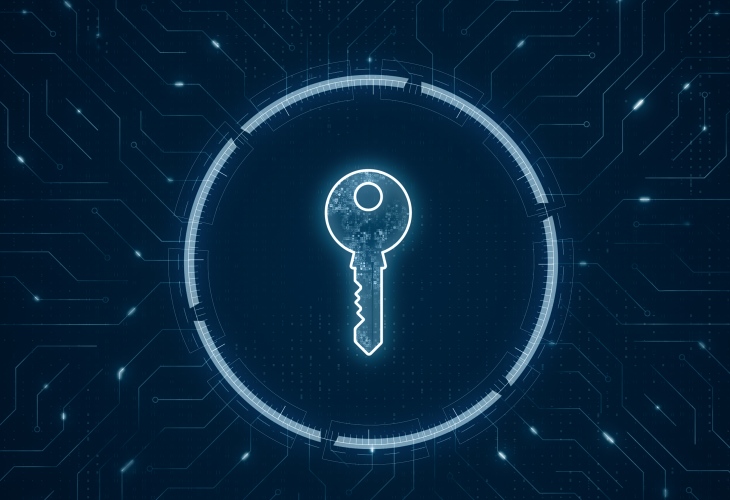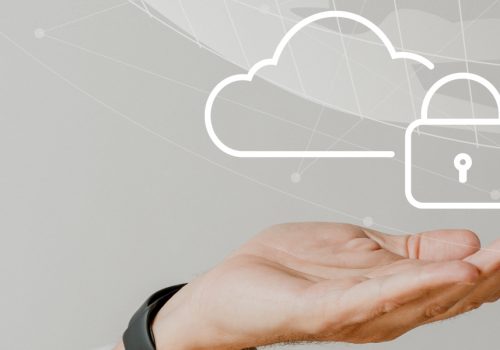In this digital age, where cyber threats are becoming more sophisticated and pervasive, organizations of all sizes are grappling with the need to bolster their security posture. One effective way to achieve this is by implementing ISO/IEC 27001, a comprehensive security framework that provides a systematic approach to managing sensitive information and protecting it from unauthorized access, disclosure, alteration, and destruction.
Introduction
ISO/IEC 27001, also known as the Information Security Management System (ISMS), is an internationally recognized standard that sets out the requirements for establishing, implementing, maintaining, and continually improving an organization’s information security management system. By adopting this standard, organizations can demonstrate their commitment to security and protect their sensitive information from a multitude of threats.
But what are the specific benefits that ISO/IEC 27001 can bring to different types of organizations? Let us explore the advantages for startups, small and mediumsized enterprises (SMEs), and large, mature, and regulated firms.

Advantages for Startups
For startups, implementing ISO/IEC 27001 can provide a competitive edge in the market. By demonstrating a robust information security management system, startups can instill confidence in their potential customers and investors. This can lead to increased trust and credibility, which are crucial for startups looking to establish themselves in a highly competitive landscape.
In addition, ISO/IEC 27001 can help startups identify and mitigate potential security risks early on. By conducting a thorough risk assessment and implementing appropriate controls, startups can proactively protect their sensitive information and prevent costly security breaches.
This not only safeguards their own data but also helps them build a reputation for being a trustworthy and secure organization.
Advantages for Small and Medium-sized Enterprises (SMEs)
For small and medium-sized enterprises (SMEs), ISO/IEC 27001 can provide a structured framework for managing information security. SMEs often face resource constraints and may not have dedicated security teams. By adopting ISO/IEC 27001, SMEs can benefit from a systematic approach to information security management, ensuring that all relevant areas are covered and risks are effectively managed.
ISO/IEC 27001 can also help SMEs meet regulatory requirements and comply with industry standards. Many industries have specific security requirements that organizations must adhere to.
By implementing ISO/IEC 27001, SMEs can demonstrate their commitment to security and ensure that they meet the necessary compliance obligations.

Advantages for Large, Mature, and Regulated Firms
Large, mature, and regulated firms can also benefit greatly from ISO/IEC 27001. These organizations often deal with a vast amount of sensitive information and face complex security challenges. ISO/IEC 27001 provides a comprehensive framework for managing information security risks and establishing a robust security posture.
By implementing ISO/IEC 27001, large organizations can streamline their security processes and ensure consistency across different departments and business units. This helps in creating a unified approach to information security and reduces the risk of gaps or inconsistencies in security practices.
Furthermore, ISO/IEC 27001 can enhance the reputation and credibility of large, mature, and regulated firms. These organizations are often subject to scrutiny from regulators, customers, and other stakeholders. By achieving ISO/IEC 27001 certification, they can demonstrate their commitment to protecting sensitive information and complying with industry best practices, which can help build trust and confidence among their stakeholders.
ISO/IEC 27001: A Security Framework for All Business Sizes
Regardless of the size or nature of your business, ISO/IEC 27001 provides a flexible framework that can be tailored to meet your specific needs. Its systematic approach to information security management ensures that no stone is left unturned when it comes to safeguarding your organization’s critical assets and data.
This framework consists of a set of policies, procedures, processes, and controls to manage risks and ensure the confidentiality, integrity, and availability of information. By implementing ISO/IEC 27001, organizations can be confident that they are adhering to industry best practices and international standards for information security.
Implementing ISO/IEC 27001 not only helps organizations protect their sensitive information but also provides a competitive advantage. In today’s digital age, where data breaches and cyber-attacks are becoming increasingly common, customers and partners are more concerned about the security of their information.
By demonstrating compliance with ISO/IEC 27001, organizations can instill trust and confidence in their stakeholders, giving them a competitive edge in the market.
Furthermore, ISO/IEC 27001 is not just a one-time certification. It requires organizations to establish an Information Security Management System (ISMS) that continuously monitors and improves their security posture. This ongoing commitment to information security ensures that organizations stay ahead of emerging threats and vulnerabilities, providing a proactive approach to protecting valuable assets.
ISO/IEC 27001 is applicable to businesses of all sizes, from small startups to multinational corporations. The framework’s flexibility allows organizations to scale their security measures based on their specific requirements and resources. Whether you are a small business looking to establish a solid foundation for information security or a large enterprise aiming to enhance your existing security practices, ISO/IEC 27001 can be customized to fit your needs.
Moreover, ISO/IEC 27001 is not limited to any particular industry or sector. It can be implemented by organizations operating in various fields, including finance, healthcare, manufacturing, and technology. The framework’s broad applicability makes it a versatile tool for organizations across different sectors, ensuring that information security is prioritized regardless of the industry.
By adopting ISO/IEC 27001, organizations can also benefit from improved internal processes and efficiency. The framework encourages organizations to assess their current information security practices, identify areas for improvement, and implement necessary changes. This systematic approach not only enhances security but also streamlines operations, reducing the risk of errors, inefficiencies, and disruptions.
In conclusion, ISO/IEC 27001 is a comprehensive security framework that can be customized to meet the unique needs of any business, regardless of its size or industry. By implementing this framework, organizations can protect their critical assets and data, gain a competitive advantage, and improve their overall security posture.
With the ever-increasing threat landscape, ISO/IEC 27001 provides a proactive and systematic approach to information security, ensuring that organizations stay ahead of emerging risks and vulnerabilities.

Benefits of ISO/IEC 27001 for Startups
Startups often operate in a fast-paced environment, with limited resources and a focus on rapid growth. However, this does not exempt them from the need to protect their information assets. ISO/IEC 27001 can provide startups with a competitive edge by instilling confidence in their customers and partners.
By implementing the ISO/IEC 27001 standard, startups can demonstrate their commitment to information security, which can give them an advantage in securing partnerships and expanding their customer base. Additionally, ISO/ IEC 27001 can facilitate compliance with regulatory requirements and increase the overall resilience of the startup’s information security infrastructure.
One of the key benefits of ISO/IEC 27001 for startups is the ability to instill confidence in customers and partners. In today’s digital age, data breaches and cyber-attacks are becoming increasingly common, and customers are more concerned than ever about the security of their personal information.
By implementing ISO/IEC 27001, startups can demonstrate that they have taken the necessary steps to protect sensitive data and ensure the confidentiality, integrity, and availability of information assets.
Moreover, ISO/IEC 27001 can also provide startups with a competitive advantage when it comes to attracting investors.
Investors are not only interested in the potential return on investment but also in the risks associated with the startup. By having ISO/IEC 27001 certification, startups can showcase their commitment to information security, which can help alleviate concerns and increase investor confidence.
Another benefit of ISO/IEC 27001 for startups is the facilitation of compliance with regulatory requirements. Depending on the industry in which the startup operates, there may be specific regulations and standards that need to be met. ISO/IEC 27001 provides a framework that can help startups meet these requirements and ensure that their information security practices align with industry best practices.
Furthermore, ISO/IEC 27001 can enhance the overall resilience of a startup’s information security infrastructure. The standard requires the implementation of a risk management process, which helps identify and mitigate potential threats and vulnerabilities. By proactively addressing these risks, startups can reduce the likelihood of security incidents and minimize the impact of any potential breaches.
In conclusion, ISO/IEC 27001 offers numerous benefits for startups. From instilling confidence in customers and partners to attracting investors and facilitating compliance with regulatory requirements, the standard can provide startups with a competitive edge in today’s digital landscape.
By implementing ISO/IEC 27001, startups can demonstrate their commitment to information security and enhance the overall resilience of their information security infrastructure.
Benefits of ISO/IEC 27001 for Small and Mediumsized Enterprises (SMEs)
SMEs often face unique challenges when it comes to information security. Limited resources, budget constraints, and a lack of in-house expertise can make it challenging to implement robust security measures. However, ISO/IEC 27001 can help SMEs overcome these hurdles and enhance their security posture.
One of the key benefits of ISO/IEC 27001 for SMEs is that it provides a systematic and structured approach to managing information security. By following the framework outlined in the standard, SMEs can identify and assess potential risks, implement appropriate controls, and continually monitor and improve their security measures.
Moreover, ISO/IEC 27001 can help SMEs build trust with their customers and partners. By demonstrating that they have established an information security management system in accordance with international standards, SMEs can differentiate themselves from their competitors and instill confidence in their stakeholders.
Implementing ISO/IEC 27001 can also have a positive impact on an SME’s reputation. With the increasing number of cyber threats and data breaches, customers are becoming more cautious about sharing their personal information with businesses. By obtaining ISO/IEC 27001 certification, SMEs can assure their customers that their information is being handled securely and in compliance with industry best practices.
In addition, ISO/IEC 27001 can help SMEs streamline their internal processes and improve efficiency. The standard encourages organizations to establish clear roles and responsibilities for information security management, ensuring that everyone in the company understands their role in protecting sensitive information. This clarity can lead to better coordination and collaboration among employees, ultimately resulting in improved productivity and reduced operational risks.
Furthermore, ISO/IEC 27001 can help SMEs stay ahead of regulatory requirements. With the increasing number of data protection laws and regulations, such as the General Data Protection Regulation (GDPR), SMEs need to ensure that they are compliant with these legal obligations.
Implementing ISO/IEC 27001 can help SMEs establish a framework for compliance, ensuring that they meet the necessary requirements and avoid potential penalties or legal consequences.
Another advantage of ISO/IEC 27001 for SMEs is the ability to gain a competitive edge in the market. Many larger organizations and government agencies require their suppliers and business partners to have ISO/IEC 27001 certification. By obtaining this certification, SMEs can open up new business opportunities and expand their customer base. It demonstrates their commitment to protecting sensitive information and gives them a competitive advantage over other non-certified competitors.
Lastly, ISO/IEC 27001 promotes a culture of continuous improvement within SMEs. The standard requires organizations to regularly review and update their security measures to address emerging threats and vulnerabilities. By continuously monitoring and improving their information security practices, SMEs can adapt to the evolving threat landscape and ensure that their security measures remain effective over time.

Benefits of ISO/IEC 27001 for Large, Mature, and Regulated Firms
Large, mature, and regulated firms often have complex information security requirements due to their size, the diverse range of systems they operate, and the regulatory frameworks they must adhere to. ISO/IEC 27001 can provide these organizations with a comprehensive framework to manage their information security risks effectively.
One of the significant benefits of implementing ISO/IEC 27001 for large organizations is the ability to establish a consistent and harmonized approach to information security across different business units and locations. This can help streamline security processes, ensure compliance with applicable regulations, and mitigate the risk of security breaches.
Furthermore, ISO/IEC 27001 can enhance the organization’s reputation and credibility. By obtaining certification, these firms demonstrate to their clients, shareholders, and regulators that they have taken a proactive approach to managing information security risks and protecting sensitive data.
Implementing ISO/IEC 27001 can also lead to improved operational efficiency. By implementing a standardized information security management system, large organizations can reduce duplication of efforts and eliminate inconsistencies in security practices.
This can result in cost savings and increased productivity, as employees can focus on their core responsibilities rather than dealing with ad hoc security measures.
In addition, ISO/IEC 27001 provides a framework for continuous improvement. The standard requires organizations to regularly review and update their information security controls to ensure they remain effective in the face of evolving threats and changing business needs. This proactive approach helps organizations stay ahead of potential risks and adapt their security measures accordingly.
Another advantage of ISO/IEC 27001 is its compatibility with other management systems. Many large organizations already have established systems for quality management (ISO 9001) or environmental management (ISO 14001). ISO/IEC 27001 can be integrated with these existing systems, allowing organizations to leverage their existing processes and resources to manage information security effectively.
ISO/IEC 27001 certification can also open up new business opportunities for large, mature, and regulated firms. Many clients and partners now require their vendors and suppliers to have a robust information security management system in place. By obtaining certification, organizations can demonstrate their commitment to protecting sensitive information and gain a competitive edge in the marketplace.
Furthermore, ISO/IEC 27001 can help organizations meet regulatory requirements more effectively. Many industries, such as finance, healthcare, and government, have specific regulations and standards related to information security. Implementing ISO/IEC 27001 can help organizations demonstrate compliance with these requirements and avoid costly penalties or legal issues.
In conclusion, ISO/IEC 27001 offers numerous benefits for large, mature, and regulated firms. From establishing a consistent approach to information security and enhancing reputation to improving operational efficiency and meeting regulatory requirements, this standard provides a comprehensive framework to manage information security risks effectively.

Real-World Case Studies
Real-world case studies provide valuable insights into the tangible benefits that organizations have derived from implementing ISO/IEC 27001. Let us examine a few examples:
- Case Study 1: A startup in the fintech industry achieved rapid growth and secured several strategic partnerships after obtaining ISO/IEC 27001 certification. The certification demonstrated the startup’s commitment to security and instilled confidence in its customers and partners.
The startup, with its innovative financial technology solutions, was poised for success. However, in an industry where trust and security are paramount, the startup needed a way to reassure potential customers and partners that their data would be protected.
By obtaining ISO/IEC 27001 certification, the startup sent a clear message that it had implemented robust information security measures.
This certification not only gave the startup a competitive edge but also opened doors to strategic partnerships. Established financial institutions and investors recognized the startup’s commitment to security and were more willing to collaborate. With ISO/IEC 27001 certification as a testament to its dedication, the startup experienced rapid growth and expanded its customer base. - Case Study 2: An SME in the healthcare sector implemented ISO/IEC 27001 to comply with regulatory requirements and enhance the protection of patient data. The certification improved the SME’s reputation and enabled it to win contracts with larger healthcare organizations.
In the healthcare industry, safeguarding patient data is of utmost importance. The SME recognized the need to strengthen its information security practices to comply with regulatory requirements and protect sensitive medical information. By implementing ISO/ IEC 27001, the SME demonstrated its commitment to maintaining the confidentiality of patient data.
The certification not only ensured compliance but also had a positive impact on the SME’s reputation. Healthcare organizations, both large and small, were more inclined to trust the SME with their data due to its ISO/IEC 27001 certification. This newfound trust translated into increased business opportunities, as the SME was able to secure contracts with larger healthcare organizations that required stringent security measures. - Case Study 3: A large financial institution implemented ISO/IEC 27001 across its global operations, resulting in improved operational efficiency, reduced risks, and increased customer trust. The certification facilitated compliance with regulatory frameworks across different jurisdictions.
As a global financial institution, ensuring the security of sensitive financial information was a top priority. By implementing ISO/IEC 27001, the institution established a comprehensive information security management system that covered its operations worldwide.
The certification brought about significant improvements in operational efficiency. Standardized security processes and procedures streamlined operations, reducing redundancies and enhancing productivity. Additionally, the institution experienced a decrease in security incidents and associated risks, as ISO/IEC 27001 helped identify and address vulnerabilities proactively.
Customer trust played a crucial role in the financial institution’s success. ISO/IEC 27001 certification served as a powerful assurance to customers that their financial data was being handled with the utmost care. This increased customer trust translated into stronger customer relationships and loyalty.
Furthermore, the financial institution operated in multiple jurisdictions, each with its own set of regulatory frameworks. ISO/IEC 27001 facilitated compliance with these regulations, ensuring that the institution met legal requirements and avoided potential penalties.
Conclusion
ISO/IEC 27001 offers a multitude of benefits for organizations of all sizes. By implementing this comprehensive security framework, startups, small and medium-sized enterprises (SMEs), and large, mature, and regulated firms can enhance their security posture, build trust with stakeholders, and demonstrate their commitment to protecting sensitive information.
With cyber threats constantly evolving, ISO/IEC 27001 provides a solid foundation to safeguard your organization’s critical assets and stay ahead in today’s digitally connected world.




